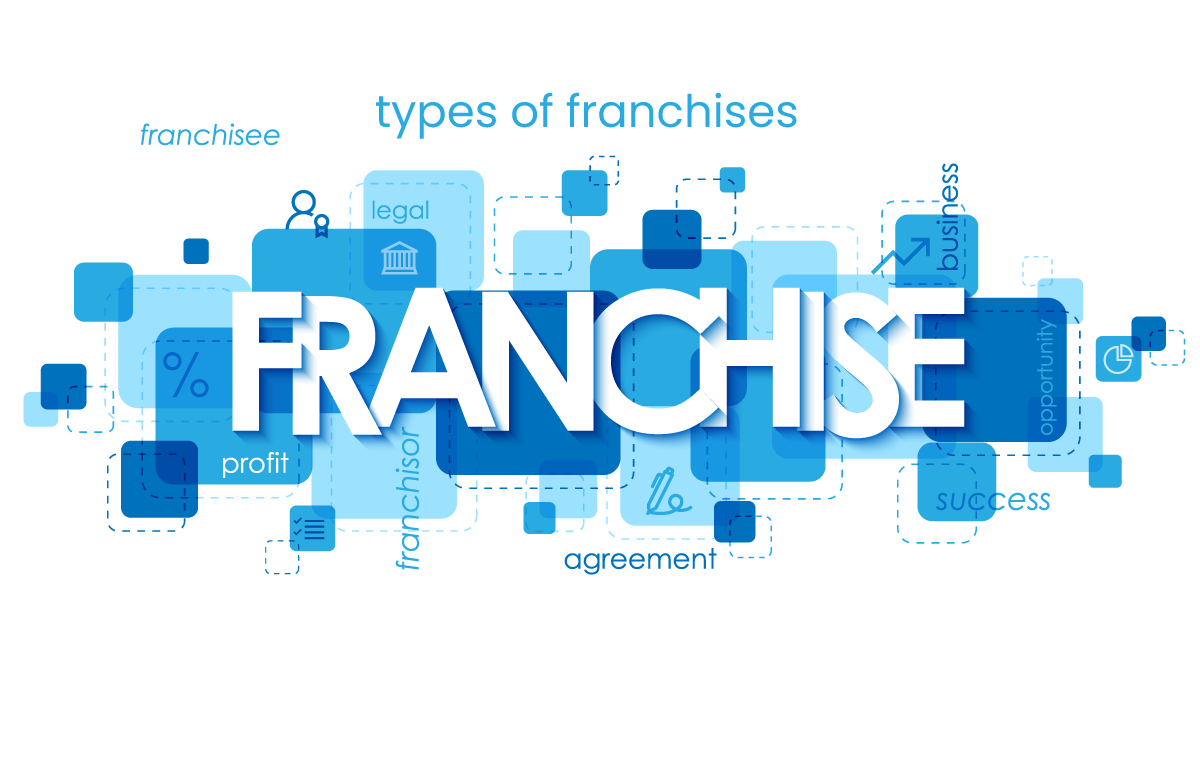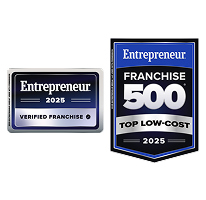Your goal is to become your own boss. You want to be in charge of your own destiny and take full advantage of your admirable work ethic, motivation, and passion for excellence. But you have a lot of questions about how to proceed. How do you start your own business — and what kind of company should it be?
Do you need to find investors? Where can you make the most impact? Should you consider an insurance franchise?
There are numerous advantages to this approach once you know the different types of franchises you might own. First, you need a prime understanding of what the franchise business model is all about.
The Basics and Benefits of Business Franchising
Franchising is a way of starting a company with a head start. The company is your own, but you’ve bought the rights to use a logo, branding, business model, reputation, and even the products or services of a more established company that your customers will probably instantly recognize. That’s what puts you several steps ahead of the traditional start-up model, where you basically start from nothing.
If you buy an Applebee’s or a Hertz Rent-a-Car franchise, your patrons know exactly what to expect because they’ve done business with those companies in the past. Not with your company but with others with the same name, look, and ways of doing business. This brand recognition is priceless — not something that would ever happen from the get-go if you start a company from scratch with an unfamiliar name.
In addition to that valuable benefit, entrepreneurs become franchisees for the training, day-to-day support and guidance, and the proven processes and procedures that made the parent company so successful that you want to emulate it.
After all, your franchisor has years or decades of experience. They’ve long ago weathered the start-up storms any new companies can expect. As such, they can help you avoid the rookie mistakes that could sink a very young company that didn’t have such guidance.
If you’re new at all of this, you’ll be especially eager to find easy franchises to open as first-time business owners.
Now, take a closer look at four distinct types of franchising models you might–or might not–wish to pursue.

Business Format Franchise
This is a good place to start since it’s the most common type of franchise business model. Your operation will be closely identified with your franchisor brand. You’ll exhibit their logos and signage and be thought of as that company. You’ll be trained in the processes that made your franchisor so successful and well known.
You can find business format franchises in categories as diverse as retail, food and beverage, hospitality, insurance agencies, education, personal services, and countless others.
The cost of entry can be high or low, depending on the business format franchise category that you select. Think about it. If you’re operating a sit-down restaurant with a building that you must build or convert, food to stock, expensive kitchen appliances on the tab, and a staff of 50 by opening day, it will cost a lot more than if you buy into an insurance agency franchise model.
In that second category, you might operate out of your spare bedroom and employ only yourself, making it an example of low employee count businesses — at least until you grow big enough to hire others and lease an official office unit.
Investment Franchise
Think of this as a business format franchise model on steroids — at least in terms of the cost of entry and operational activities. Whereas some popular operation types might be available for a few or several thousand dollars, an investment franchise is likely to cost well into seven figures at start-up. Think of a multi-star hotel in a major city or the acquisition of higher-end restaurants.
An investment operation typically receives less support from the franchisor because it has an experienced corporate management team in place to run it. Therefore, this is not a common franchise business model for entrepreneurs without a lot of capital or organizational backing.
Job Franchise
This is at the opposite end of the cost and complexity spectrum as the investment franchise. Someone who buys into a job franchise wishes to start small — and probably to stay that way.
Job franchisee owners typically work alone. Examples include commercial window washers, house cleaners, and vending machine suppliers. This is a good model for the prospective business owner with very little investment capital but the goal of running their own operation. If you go this route, you can achieve modest success while getting the professional support and guidance of the franchisor and having no bosses looking over your shoulder as you work.
Distribution Franchise
This model is a hybrid between a franchise and a non-franchise operation. You’ll be regularly supplied with the products of your franchisor but will operate mostly in your own name.
Consider a Chevrolet dealership run by “Bob Jones.” It’s known as Bob Jones Chevy, but this particular company doesn’t remind its customers of every Chevy dealership they’ve ever visited anywhere in the country. While the business will include the automaker’s signage — and vehicular product line, for sure — customers will see themselves as interacting more with Bob Jones’ company than with the automaker, especially when it comes to the service garage operations and customer service.
When Considering Types of Franchises, Consider Freeway Insurance
Freeway Insurance is a business format franchise model. That means that our operations get all the advantages of our years in operation and the Freeway Insurance reputation as one of the nation’s largest and most respected personal lines insurance agencies.
You’ll get top-tier training and all the insurance agent education requirements you’ll need, including certification to operate in your state. Your cost of entry will be low, and you’ll instantly benefit in the form of product inventory from the business relationships we’ve established with major insurance brands.
As an independent business owner, you’ll be on your own, but you’ll have day-to-day support and guidance as you need it and a brand that your policyholders will recognize.
For more information, contact a Freeway Insurance franchise representative online or by calling (877) 822-3024.
We’ll show you, step by step, how to get into insurance as a career.



